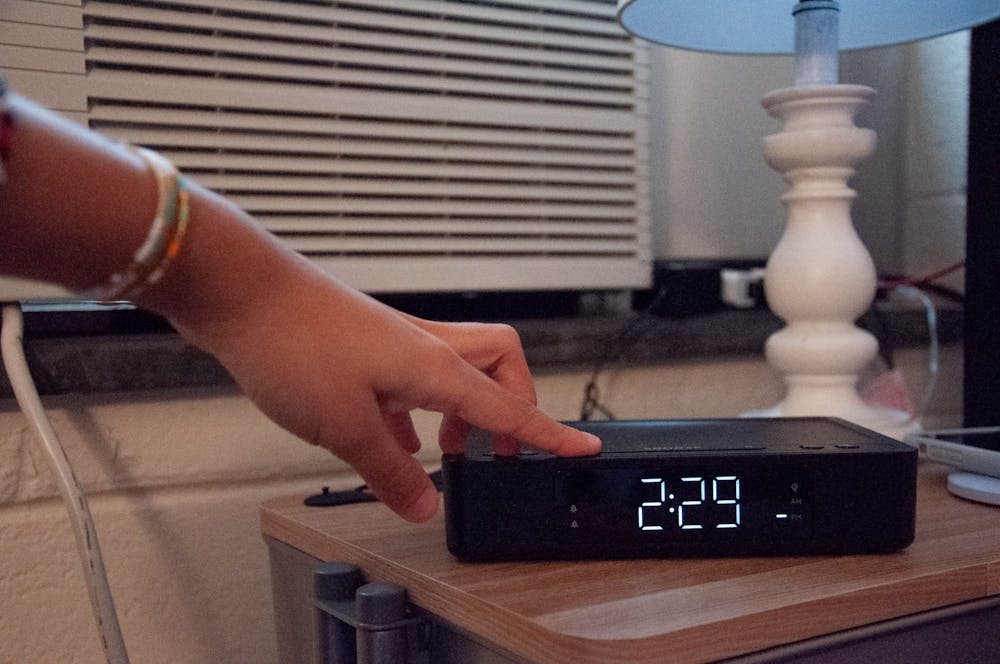Sarah Scarborough has an alarm set for 7 a.m. She hits snooze until 9, then attends her online classes, Diet Coke in hand. It gets dark, but she’s not tired yet since she still has some pent up energy considering she’s not walking to classes these days. Motivation during the day has been low, so she has enough work to keep her occupied until she falls asleep at 2 or 3 a.m. Rinse and repeat.
It’s not an unusual schedule for a student this semester, but it goes against almost every one of the “baseline things” CAPS psychologist Anna Lock recommends to students when it comes to sleep hygiene.
It’s familiar advice: don’t do work or use your phone in bed, avoid caffeine and alcohol late in the day and stay active.
Although a college student struggling to maintain healthy sleeping habits is not unique to the pandemic, challenges like a lack of routine, being stuck in the house and struggles with mental health have notably impacted the sleeping habits of students like Scarborough over the past year.
“It’s weird, I feel like I do less, but I still have less energy,” Nykolas Zollbrecht, a junior struggling with sleep, said. “I haven’t felt well-rested in a long time.”
In the National College Health Assessment conducted during the spring of 2020, UNC students were asked how many days per week they got enough sleep that they felt rested. Sixty percent of the students surveyed responded zero to two days. Forty-one percent reported getting less than seven hours of sleep per weeknight on average.
Lock and Dean Blackburn, director of Student Wellness, pointed to sleep as foundational for student health and well-being.
“Sleep is that thing that I always ask about first when I’m working with a student and wondering what may be underlying some of their current struggles,” Lock said, “[Lack of] sleep makes it harder for us to concentrate, it makes it harder for us to encode new information… it makes it harder for us to manage stress, so it can exacerbate anxiety and it can exacerbate depression.”
But it’s not always clear what constitutes healthy sleeping habits. Lock said for some people, five hours of sleep might be enough, while others need eleven. In terms of sleep schedules, some students prefer to work late at night and sleep into the afternoon.




